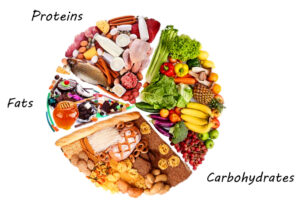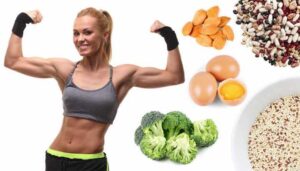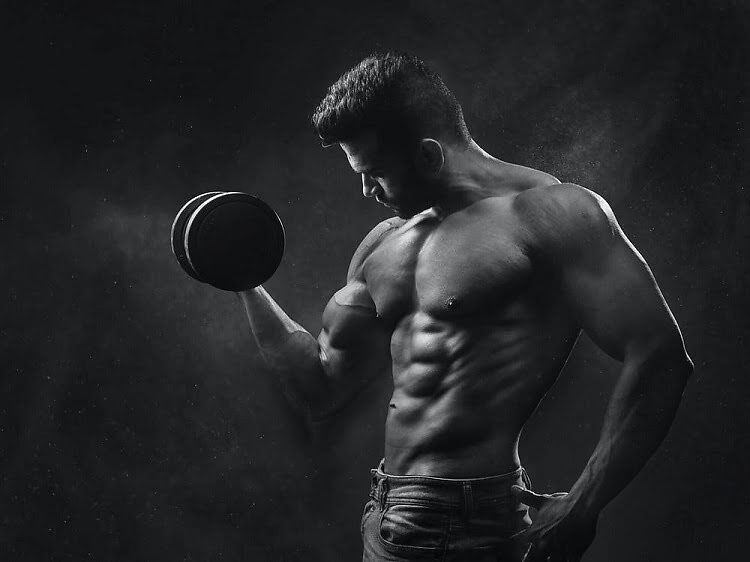There’s no doubt that protein helps build muscles, And if you exercise most days of the week, you might be concerned about how much muscle you can add if you don’t consume enough protein while training.
Protein is well-known to be a crucial component of any diet when it comes to bodybuilding. But whether or not it is necessary for muscle growth is the more important question that people want to know.
For this article, we have spent hours investigating the opinions of professionals and scientists on the topic of whether one can build muscles without protein or not.
Can I build muscles without protein?
No. You can not jump right into building muscle without eating your proteins. Proteins are the body (muscle) building block of the human body, you definitely can’t do without proteins because it contains amino acids, protein is necessary for muscular building.
These enzymes are fundamental building blocks necessary for the development and upkeep of body tissue. Proteins are often given top priority by your body to maintain vital physical activities.
How about Protein supplements?
Certainly, YES. You can build muscles without taking Protein powders and supplements. Most bodybuilders take protein supplements to aid in building muscle mass. It’s not necessary to consume any kind of protein powder to gain muscle.
What are the essential Nutrients to Build muscles?

Most people would likely answer that eating protein is all that’s necessary if you asked them what it takes to get muscle. Undoubtedly, protein is necessary. However, protein alone won’t cut it; you also need to consider the rest of your diet.
You must consume the proper ratio of nutrients and the necessary number of calories to support your exercise if you want to properly increase your muscle growth.
Carbohydrates: Carbs are often viewed as the enemy by bodybuilders, however, this isn’t always the case. The proper carbohydrates present in whole grains, legumes, fruits, and vegetables support the energy needs of all types of activity, including those of working muscles. Without enough carbohydrates, part of the protein in your diet may be used as fuel during activity.
Fat: Some athletes undervalue the importance of dietary fat. Similar to carbohydrates, lipids may have an unjustified poor reputation. Some fatty acids, the building blocks of dietary lipids, are necessary since the body cannot produce them on its own. Every cell membrane, including the membranes of muscle cells, is structurally dependent on fatty acids. The body uses fat as fuel for longer-duration, moderate-intensity exercise.
To aid in enhancing muscle building, you should include fats in your diets such as nuts, seeds, seafood, olive oil, and avocado.
Protein: Proper protein dietary intake is crucial for promoting muscle growth. Strength training exercise stimulates the process of muscle protein synthesis (MPS). But eating protein also stimulates it. This is one reason why athletes who engage in strength training should try to distribute their daily protein intake somewhat evenly between meals and snacks.
What Amount Of Protein Is Required To Build Muscle?
Your body needs more calories to create muscle than it does to maintain body composition. Some individuals could find it challenging to comprehend this idea. Your daily protein requirements are influenced by several variables, including your age, weight, gender, and degree of activity.
A male between the ages of 31 and 50 who consumes 2,400 calories per day needs roughly 56 grams of protein, according to the Dietary Guidelines for Americans, 2015-2020. Additionally, a woman between the ages of 31 and 50 who consumes 1,800 calories per day requires roughly 46 grams of protein.
The Academy of Nutrition and Dietetics recommends that protein comprise 10 to 35 percent of your daily calorie intake to help you determine how much you need. And more exactly, 0.37 grams per pound of body weight is the recommended dietary requirement for an average adult.
Using the 0.37 grams per pound of body weight equation as your starting point will help you figure out your needs if you’re aiming to gain muscle, especially if you’re consuming a lot of calories. However, if you set your baseline and take into account your level of activity, you might discover that you require more protein than the daily maximum recommended dietary limit.
How to build muscles naturally

Use natural whole foods
Everything that enters your system requires a place to be stored. to be able to build muscles healthy, you should avoid Junk and processed foods as they contain lots of sugar which will not help you in building those muscles. The best thing you can do is include natural, whole foods in your meals.
Exercise Regularly
You’ll need to do more than just make going to the gym your New Year’s Resolution if you want to bulk up. You should also incorporate challenging exercises into your programs, such as weightlifting, resistance training, and strength training.
This supports the growth of protein in the muscles, which is a procedure utilized to repair muscular damage brought on by strenuous activity. Your muscles will therefore develop in strength and size.
Your muscles require fat to sustain them during those strenuous workouts.
You should add more healthy fats to your diet plan. This includes omega 3s found in eggs, avocado, and olive oil. Additionally, nuts and fatty fish are good sources of healthy fat, which aids in the consumption of proteins.
Consume Enough Protein
You won’t have enough nutrition to grow without protein Be sure to get adequate protein to enable your body to use them for muscle growth. Choose protein drinks or a protein supplement that is gentler on your stomach if you are having trouble increasing your protein intake because of your appetite.
Read: Do Protein Shakes Help with Abs? Best Protein Supplement for Abs in 2022
The Best High-Protein Foods for Muscle Growth
If you are not taking enough protein, the food list below will help you know the amount of protein contained in certain foods you would need to add to your diet to help you on your muscle-building journey.
- Cod contains 18g of protein per 100g.
- Whey protein contains 80-90g of protein per 100g.
- 33g of protein per 100g of chicken breast.
- 70–80 g of protein per 100 g for vegans..
- 48g of protein contained in 100g of clams and other mollusks.
- Parmesan cheese low in salt contains 42g of protein per 100g.
- 17g of protein per 100g of tofu
- 36g of protein per 100g of lean beef.
- 25g of protein per 100g of lamb
- Pork Tenderloin: each 100g has 23g of protein.
- 88g of protein per 100g of soy protein isolate
- 5g of protein per 100g of eggs.
- 2g of protein are included in 100g of grilled salmon.
- 23g of protein in 100g of tuna.
- Pork chops on a grill: 31g each
